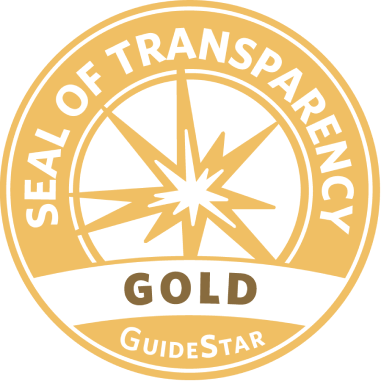Post-Traumatic Stress Disorder (PTSD) is a mental health condition that occurs after experiencing or witnessing a traumatic event. It can manifest in anyone, but women are statistically more likely to develop PTSD than men, often due to gender-specific experiences such as domestic violence, sexual assault, or abuse. Despite its prevalence, PTSD in women is frequently misunderstood or overlooked, leading many to suffer in silence.
At the Omid Foundation, we work with adolescent girls and young women from marginalized communities, many of whom carry the invisible scars of trauma. By recognizing the unique ways PTSD affects women and offering targeted strategies to address it, we can help these individuals heal and rebuild their lives.
This article explores how PTSD manifests in women, its common causes, and effective approaches to recovery.
Understanding PTSD
PTSD develops in response to a traumatic event that overwhelms an individual’s ability to cope. Common symptoms include:
Re-experiencing the Trauma: Flashbacks, nightmares, or intrusive thoughts that make the survivor feel as though they are reliving the event.
Avoidance: Efforts to avoid people, places, or activities that trigger memories of the trauma.
Negative Changes in Mood or Thinking: Feelings of guilt, shame, hopelessness, or detachment from others.
Hyperarousal: Heightened alertness, irritability, difficulty sleeping, or an exaggerated startle response.
For women, these symptoms often intersect with societal and cultural factors that shape how they experience and express trauma.
Why Women Are More Vulnerable to PTSD
While anyone can develop PTSD, women face unique risk factors that increase their likelihood of experiencing it.
- Gender-Based Violence
Women are disproportionately affected by gender-based violence, including domestic abuse, sexual assault, and human trafficking. These forms of violence often involve a betrayal of trust, leaving survivors with deep emotional scars.
- Societal Expectations
Cultural norms frequently discourage women from expressing anger or seeking help, leading many to suppress their feelings and internalize their pain. This can delay recognition and treatment of PTSD.
- Caregiving Roles
Women are often primary caregivers, making it difficult for them to prioritize their own mental health. The pressure to appear strong for others can exacerbate feelings of guilt and isolation.
- Complex Trauma
Many women experience chronic or repeated trauma, such as ongoing abuse or displacement due to conflict. This “complex trauma” can result in more severe PTSD symptoms that require specialized treatment.
Recognizing PTSD in Women
PTSD can manifest differently in women compared to men. Understanding these distinctions is crucial for early intervention and effective support.
- Emotional Responses
Women with PTSD are more likely to experience intense emotions such as fear, sadness, or guilt. They may also struggle with low self-esteem and feelings of helplessness.
- Physical Symptoms
PTSD often takes a physical toll on women, leading to headaches, fatigue, gastrointestinal issues, or chronic pain. These symptoms are sometimes misdiagnosed as unrelated medical conditions.
- Relational Challenges
Women with PTSD may find it difficult to trust others or maintain healthy relationships. They may isolate themselves or, conversely, become overly dependent on others for reassurance.
- Co-Occurring Disorders
PTSD in women is frequently accompanied by conditions such as depression, anxiety, or substance abuse, which can complicate diagnosis and treatment.
At the Omid Foundation, we prioritize a holistic approach to identifying PTSD, ensuring that women’s emotional, physical, and social needs are addressed.
Addressing PTSD in Women
Recovering from PTSD requires a multi-faceted approach that combines professional treatment, community support, and personal empowerment.
- Professional Therapy
Therapy is a cornerstone of PTSD recovery, offering survivors a safe space to process their trauma and develop coping strategies.
Trauma-Focused Cognitive Behavioral Therapy (TF-CBT): Helps individuals reframe negative thoughts and reduce the emotional intensity of traumatic memories.
Eye Movement Desensitization and Reprocessing (EMDR): A specialized therapy that uses guided eye movements to help process and integrate traumatic experiences.
Group Therapy: Provides an opportunity to connect with others who have experienced similar challenges, fostering a sense of solidarity and support.
- Building Support Networks
Social connection is critical for PTSD recovery. Family, friends, and community groups can offer emotional support, practical assistance, and encouragement.
At the Omid Foundation, we create peer support groups where women can share their stories, learn from each other, and build lasting relationships.
- Self-Care Practices
Encouraging women to prioritize their well-being is essential for recovery. Simple practices like mindfulness, exercise, and journaling can help reduce stress, improve mood, and foster a sense of control.
- Education and Advocacy
Raising awareness about PTSD helps break down stigma and encourages survivors to seek help. Educational workshops and advocacy campaigns can empower women to recognize their symptoms and advocate for their needs.
- Addressing Cultural Barriers
In many cultures, discussing mental health remains taboo. Tailored interventions that respect cultural norms while challenging harmful stereotypes can make PTSD treatment more accessible and effective.
For example, at the Omid Foundation, we work with community leaders to promote mental health awareness and create safe spaces for women to seek help.
Success Stories
Consider the story of Leila, a young woman who came to the Omid Foundation after surviving years of abuse. Leila struggled with intense flashbacks, fear of leaving her home, and a deep sense of shame. Through therapy, art workshops, and peer support, she began to confront her trauma and rebuild her confidence. Today, Leila is an advocate for mental health awareness, inspiring others with her resilience and strength.
Leila’s journey demonstrates the transformative power of comprehensive support in overcoming PTSD.
The Role of NGOs in PTSD Recovery
Organizations like the Omid Foundation play a crucial role in addressing PTSD in women, particularly those from marginalized communities. Our programs focus on:
Providing Access to Care: Many women lack access to mental health services. We offer therapy, workshops, and support groups tailored to their unique needs.
Creating Safe Spaces: We provide environments where women feel comfortable sharing their stories and seeking help without fear of judgment.
Empowering Survivors: By equipping women with skills, resources, and confidence, we help them regain control over their lives.
Advocating for Change: We work to challenge societal norms and policies that perpetuate stigma and inequality, creating a more supportive environment for trauma survivors.
Moving Forward
Recognizing and addressing PTSD in women is a critical step toward empowering survivors and fostering resilience. By understanding the unique challenges they face and offering targeted support, we can help women move beyond their trauma and embrace their potential.
At the Omid Foundation, we remain committed to providing the care, resources, and advocacy needed to break the cycle of trauma. Together, we can ensure that every woman has the opportunity to heal, thrive, and build a brighter future.
By acknowledging the prevalence of PTSD and working collectively to address it, we create a world where women no longer suffer in silence but are celebrated for their strength and courage.

